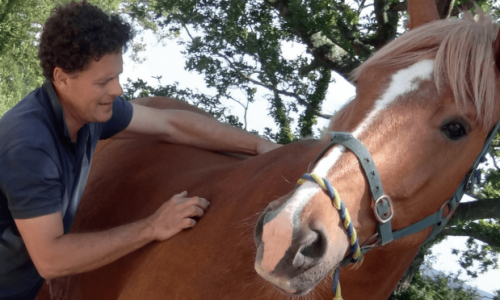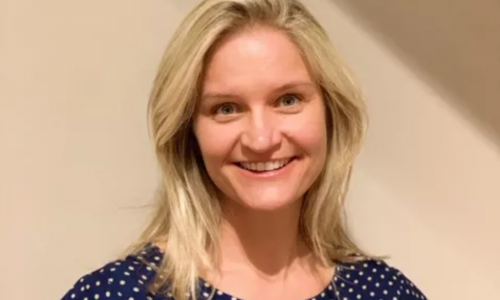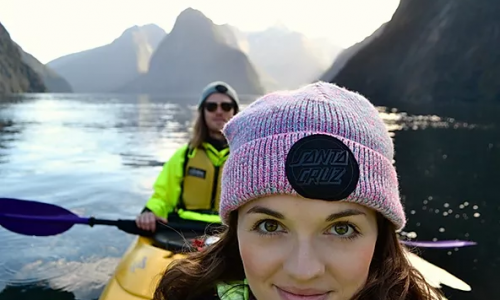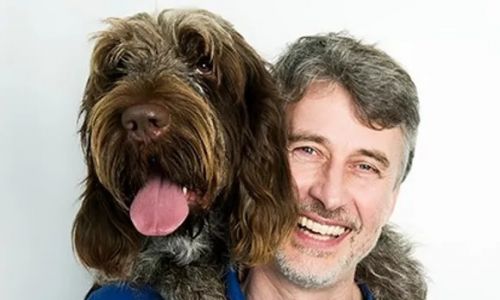Meet Ben: Consultant Project Manager, Global Burden of Animal Diseases, University of Liverpool
"A shift in mindset from maximal production to optimal production is needed, and this must be backed up through actions."
Ben Huntington
Can you describe your role?
The Global Burden of Animal Diseases (GBADs) programme is being developed by a group of international collaborators led by the University of Liverpool. GBADs will create information on the economic burden of livestock and aquaculture diseases to support animal health decision-making focused on the Sustainable Development Goals.
In my role as Project Manager, I support our collaborators in their implementation of the rollout of GBADs between 2020-2025. GBADs is supported by the Bill and Melinda Gates Foundation and the United Kingdom’s Department for International Development. My interests lie in understanding food systems in as much detail as I can. This helps me to understand the motivation behind the choices people and businesses make, informing how I can drive change for the better.
Prior to my current role, I worked in the UK poultry meat sector. Through the production of safe, nutritious, affordable food and by caring for companion animals, I believe vets are vitally important contributors to human health and wellbeing.
When did you know you wanted to work in the veterinary profession?
It started with a love of the outdoors and nature, paired with time spent on friends’ farms as a child. Working with a connection to the land and the seasons always appealed. For that reason, it wasn't a difficult choice for me to specialise in livestock production.
What’s your favourite part of the role?
Helping a team with diverse skills, opinions and priorities work together to achieve a very impactful common goal. I’m lucky to work with a truly global team, meaning I'm exposed to multiple cultures and languages along the way!
What is the most challenging part of your job?
Failure! It’s important to realise that the bigger and bolder the goal the more likely you are to encounter setbacks along the way. Understanding this has helped me take on a project with a bold vision and huge scope, and ride the inevitable highs and lows.
Do you have any tips for achieving a good work-life balance?
Define what a successful life looks like for you and then go after it. I benefit from regularly reflecting on my progress towards the goals I have set myself across three areas – family, health and work. I’m happiest when I’m nudging all of these forward equally. Number one tip – your line manager’s behaviour has a huge impact on your ability to manage your time sensibly. Choose your boss carefully and stick with a good one!
How do veterinary professionals currently help to drive sustainability?
In the livestock and aquaculture settings, clearly a healthy, stress-free and - hence productive animal - makes better use of scarce resources as it grows. Playing to our strengths as a profession and safeguarding animal health and welfare is already making a major contribution.
What do you feel are the major opportunities to drive sustainability in the veterinary sector?
A shift in mindset from maximal production to optimal production is needed, and this must be backed up through actions. What optimal looks like is up for debate and in my opinion, it must include consideration for animal welfare and environmental impact as well as efficient production of high-quality food. We must also remember that sustainability is a shared global issue. Therefore, optimisation for ourselves in the short term, at the expense of others, isn’t optimum for anyone in the long term.
What are your top tips for veterinary professionals wishing to take the first steps to drive sustainability in their roles?
In the livestock sector, very one-sided narratives are being presented by anti- and pro-meat factions. The reality is more complex and I believe lies in optimising resource use and human nutrition. Read and listen to only the most believable experts. Challenge yourself to understand views opposed to your own.
If you could wave a magic wand and make one improvement to drive the sustainability impact of the veterinary profession, what would it be?
That all vets graduate being able to speak every language on the planet - the ultimate superpower for effective communication!
Meet the people who embed sustainability into their life and work
From the veterinary nurses who advise on responsible antibiotic use and lead welfare campaigns, to the practice managers who actively reduce the environmental footprint of their workplace — we recognise the scale of your impact.



